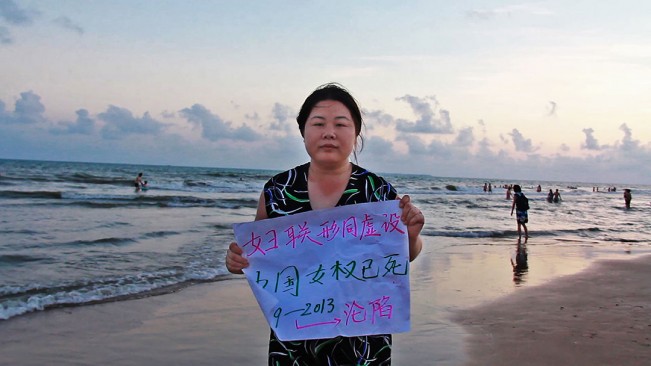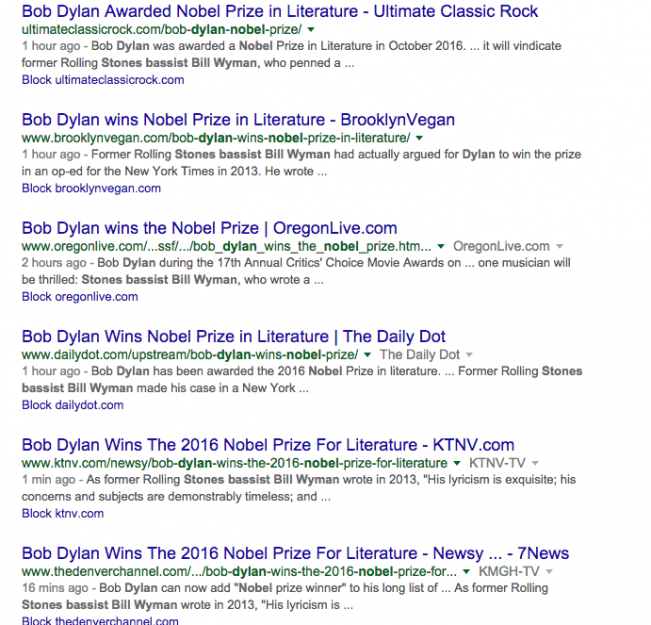Movie City Indie Archive for October, 2016
Pride, Unprejudiced: Hooligan Sparrow, Café Society

Hooligan Sparrow (POV premiere October 17)
“They can’t stop me, not by arresting me, not by killing me.” Nanfu Wang’s urgent first feature takes on the secretive side of China’s vast, controlling government, with only the recourse of gutsy guerilla filmmaking to capture the journey of activist Ye Haiyan (known as “Hooligan Sparrow”) and a group of activists who travel to Hainan Province in southern China to illegally protest the case of six elementary school girls who were sexually abused by their principal. (Her earlier work focused on sex workers and the attacks on women by authority are at the center here.) Much of the documentary was shot clandestinely with concealed recording devices, then smuggled out of the country. “I never expected to be interrogated by national security agents, and that my family and friends would be harassed and threatened by secret police,” Nanfu Wang has written, “but this is the China I saw.” The shards of surveillance of secret police, of intimidation by plainclothes operatives and the sheer oppressive weight meant to crush resistance are equally horrifying, and captured with kaleidoscopic perseverance. The executive producers are Andy Cohen, who had the same role on 2012’s “Ai Weiwei: Never Sorry” and Alison Klayman, director-producer of that pungent documentary. Broadcast debut Monday October 17 on PBS: details.
Café Society (Lionsgate Blu, $40)
Café Society, Woody Allen’s forty-ninth or so feature, completed at the age of eighty, is a light romance, but lit with the most serious of ethereal light by the great Vittorio Storaro (The Conformist, Apocalypse Now), providing Allen with his first shot-on-digital picture. Whether in overcast New York City or honeyed L.A., Café Society is Allen’s best-looking movie since the heyday of his seminal collaborations with Gordon Willis. It’s the 1930s and lightly sketched Bronx boy Bobby Dorfman (Jesse Eisenberg) escapes his family for Hollywood, and turns from naïf to macher in the reflected light of the even more lightly sketched secretary Vonnie (Kristen Stewart). Steve Carell (taking over for another, older actor who couldn’t stand the heavy lifting of largely sitting in chairs and in barrooms) does clean work as Phil, the quietly rat-a-tat agent who brings the pair together (and pulls them apart). The jokes are familiar, beginning with Bobby’s battling family (Jeannie Berlin, Ken Stott) and his cut-to-the-punchline gangster brother (Corey Stoll). Still, the ineffable Berlin is a voice of steady umbrage. And Storaro’s light can do no wrong upon faces, bringing out a piercing pale blue I’ve never seen in Eisenberg’s eyes, and making Stewart both modern and classical, her face radiating different in generous light that ranges from burnished to creamy to dreamy to candlelight to nightclub-bound. One of the many name-dropping lines that pass for dialogue, “What do you think of Joel McCrea?”—is followed by a shot of Eisenberg, practically McCrea in a nimbus of afternoon light.
The design extends in multiple lovely settings to the color experimentation Storaro practices, such as a light swoon of a moment where we first notice a simple, red-detailed dress worn by Stewart, who then walks toward a bar with a red neon “Cocktails” sign, passing beneath a spray of red maple leaves. (This is not to neglect Santo Loquasto’s design genius.) A repetition of gun murders ordered by Bobby’s brothers brings Allen’s direct shooting style close to that of Alan Clarke’s dispassionate “Elephant.” It’s a bracing element amid the agreeable japery and pleasantly familiar goings-on. The melodies of the casual storytelling are like a familiar song heard from the street below, or TCM playing in a nearby apartment. “Dare I kiss you?” “How dare you not?” (Stewart sounds the second line to perfection.) Allen’s largely superfluous voiceover sounds as if he’s sight-reading unfamiliar and unpleasant text, his belabored delivery also capturing the clack of teeth and the sigh of difficult breath. (If only Todd Solondz had narrated, even if his is a Jersey accent.) With Blake Lively as the translucent slip of a blonde who cannot supplant the memory of Vonnie despite bearing the same name; Parker Posey, Corey Stoll, Paul Schneider.
Congratulations, Bob Dylan, With Nod To “Former Rolling Stones Bassist Bill Wyman”
“Mr. Dylan’s work remains utterly lacking in conventionality, moral sleight of hand, pop pabulum or sops to his audience,” Bill Wyman, a journalist, wrote in a 2013 Op-Ed essay in The New York Times arguing for Mr. Dylan to get the award. “His lyricism is exquisite; his concerns and subjects are demonstrably timeless; and few poets of any era have seen their work bear more influence.”
“Journalist Bill Wyman has been Bill Wyman since his birth on Jan. 11, 1961. Musician Bill Wyman became Bill Wyman two years later. Before that, he was William George Perks.” But his assumed name lives on in the heart of Brooklyn Vegan!












